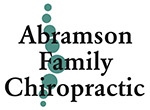Fitness May Lower Low Back Risks in a Physically Demanding Job
Questionnaires completed by 204 warehouse workers revealed that one in four had low back pain. However, the researchers found greater handgrip strength—a measure used to assess physical fitness—is associated with a lower risk for pain in the low back. Journal of Back and Musculoskeletal Research, February 2023
Access to Nature May Help Cut Stress
According to a study that looked at the health outcomes of more than 40,000 older adults, living within a half-mile of either green outdoor spaces or water reduces the risk of serious psychological distress by 17%. American Academy of Neurology, April 2023
Help Your Child Maintain a Healthy Weight
Kids who are overweight are not only more at risk for diabetes and problems with peers but are also more likely to be overweight as adults and at risk for several chronic diseases. Experts from OSF Healthcare offer the following tips for parents of an overweight child: help your child understand hunger/fullness cues; provide healthy snack options; encourage your child to exercise and spend time outside; set limits on screen time; take your child shopping and let them help you choose healthier foods; and be a model for your child by living a healthy lifestyle yourself. OSF Healthcare, January 2023
Check Your Water Heater Settings
Between 2016 and 2018, more than 52,000 Americans visited the emergency room to receive treatment for scalding burns caused by hot tap water. Researchers note that water from a water heater set at 130 degrees Fahrenheit (~54 degrees Celsius) can cause a second-degree burn in 25
seconds, while setting the water heater to 140 degrees Fahrenheit (~60 degrees Celsius) can cause a burn in just three seconds. Many experts recommend setting water heaters to 120 degrees Fahrenheit (~49 degrees Celsius). Injury Prevention, March 2023
Too Little Sodium May Harm Heart Failure Patients
To reduce fluid build-up and swelling, heart failure patients are advised to reduce their sodium intake to 2.5 grams a day (most Americans consume 3.4 grams in their daily diet). However, an analysis of data from nine studies found that cutting sodium to less than 2.5 grams a day does not confer additional heart benefits and may even increase the risk of early death. First author Dr. Anirudh Palicherla adds, “Limiting sodium is still the way to go to help manage heart failure, but the amount of restriction has been up for debate… This study shows that the focus should be on establishing a safe level of sodium consumption instead of overly restricting sodium.” American College of Cardiology, February 2023
Even Exercise Once a Month Helps!
An analysis of data concerning 1,417 adults born in 1946 revealed that engaging in any intensity of physical activity at least once a month is associated with better cognitive function later in life. Journal of Neurology, Neurosurgery, and Psychiatry, February 2023
Access to Nature May Help Cut Stress
According to a study that looked at the health outcomes of more than 40,000 older adults, living within a half-mile of either green outdoor spaces or water reduces the risk of serious psychological distress by 17%. American Academy of Neurology, April 2023
“The best way out is always through.” ~ Robert Frost
This information should not be substituted for medical or chiropractic advice. Any and all health care concerns, decisions, and actions
must be done through the advice and counsel of a health care professional who is familiar with your updated medical history.
